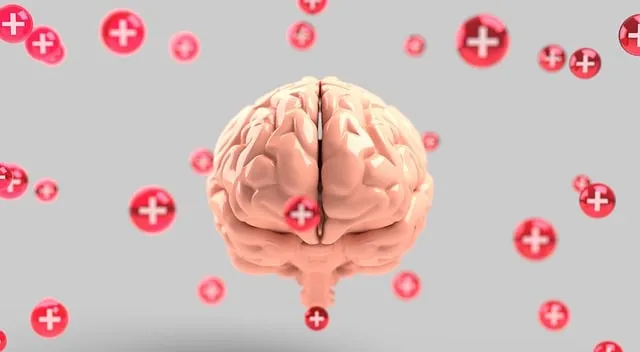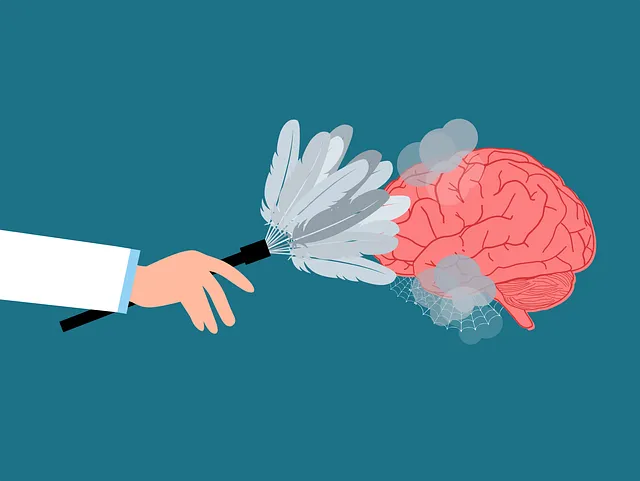The Parker Kaiser Permanente Mental Health Access Center emphasizes that mood regulation is key to emotional well-being, offering evidence-based strategies like journaling, exercise guidance, and community outreach. Through self-awareness exercises and coping strategy development, individuals gain insights into their emotional triggers. The center reduces mental illness stigma, encouraging open discussions about emotions. They provide immediate relief techniques (e.g., cognitive reframing, mindfulness) alongside long-term management strategies (e.g., regular exercise, balanced nutrition) for holistic mood control.
Mood regulation is a cornerstone of overall well-being. This article explores effective strategies for managing emotions, drawing from the expert insights of the Parker Kaiser Permanente Mental Health Access Center. We delve into foundational concepts, evidence-based techniques, and practical tips for daily application and long-term management. By understanding and harnessing these tools, individuals can enhance their emotional resilience and lead more balanced lives.
- Understanding Mood Regulation: A Foundation for Well-being
- Evidence-Based Strategies from the Parker Kaiser Permanente Mental Health Access Center
- Practical Application and Long-Term Management Tips
Understanding Mood Regulation: A Foundation for Well-being

Understanding Mood Regulation is a fundamental aspect of promoting emotional well-being, as highlighted by experts at the Parker Kaiser Permanente Mental Health Access Center. This process involves recognizing and managing one’s emotions to achieve a state of balance and stability. It is an essential tool for navigating life’s challenges and stressors, enabling individuals to maintain resilience and overall mental health.
By employing various emotional well-being promotion techniques, such as Self-Awareness Exercises, people can gain insights into their triggers and patterns. This self-reflection facilitates the development of effective coping strategies tailored to individual needs. Additionally, Mental Illness Stigma Reduction Efforts play a crucial role in encouraging individuals to seek support without fear of judgment, fostering a healthier relationship with one’s emotional state.
Evidence-Based Strategies from the Parker Kaiser Permanente Mental Health Access Center

The Parker Kaiser Permanente Mental Health Access Center has identified several evidence-based strategies to aid in mood regulation and overall mental wellness. One effective approach is mental wellness journaling, a practice that encourages individuals to reflect on their thoughts, emotions, and experiences. By documenting feelings and identifying patterns, one can gain valuable insights into triggers and develop coping mechanisms. This simple yet powerful tool has been shown to enhance self-awareness, enabling better management of moods.
Another recommended strategy is exercise guidance, which promotes physical activity as a means to improve mental health. Regular exercise releases endorphins, known for their mood-boosting effects, and can be a powerful outlet for stress relief. The Community Outreach Program Implementation at the center also plays a vital role in fostering social connections, which are essential for mental wellness. Social support networks provide a sense of belonging and can offer different perspectives on managing moods, making these initiatives valuable resources for anyone seeking to regulate their emotional well-being.
Practical Application and Long-Term Management Tips

When implementing mood regulation strategies, it’s crucial to consider both immediate relief and long-term management. The Parker Kaiser Permanente Mental Health Access Center emphasizes practical applications that individuals can integrate into their daily lives. Mind Over Matter Principles are a core component of this approach, focusing on cognitive reframing, mindfulness techniques, and positive self-talk to counteract negative thought patterns.
In addition, Mental Health Education Programs Design plays a vital role in empowering individuals with the knowledge to recognize triggers and develop coping mechanisms. Emotional Healing Processes, such as therapy and support groups, provide safe spaces for processing emotions and building resilience. By combining these short-term interventions with sustained efforts like regular exercise, balanced nutrition, and consistent sleep habits, individuals can achieve more lasting control over their mood regulation strategies.
Mood regulation is a vital skill for enhancing overall well-being, and the Parker Kaiser Permanente Mental Health Access Center offers valuable insights through its evidence-based strategies. By understanding the foundations of mood management, individuals can take control of their emotional state and navigate life’s challenges more effectively. Combining practical application tips with long-term management strategies encourages a holistic approach to mental health. This article serves as a guide, empowering folks to embrace resilient emotional regulation techniques that have the potential to revolutionize their daily lives.






